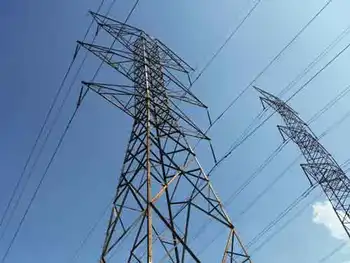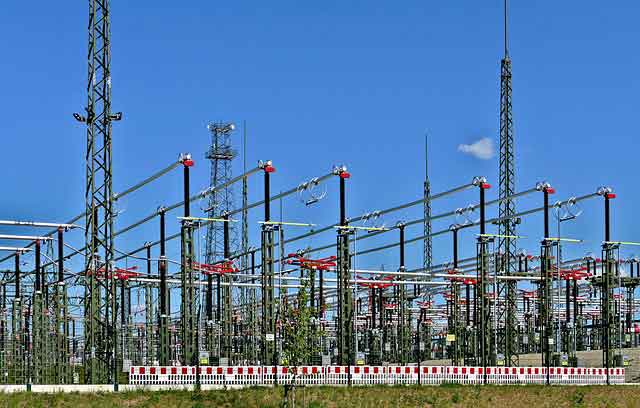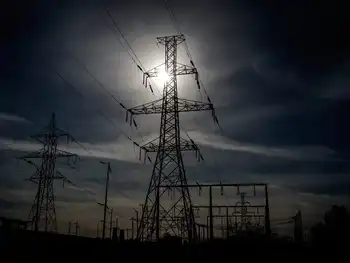Will Hydrogen Clear the Air? Maybe Not, Say Some
WASHINGTON - - Widespread hydrogen use has been enthusiastically embraced by major corporations and environmentalists alike as a panacea for global warming and the depletion of fossil fuels, and is a particular favorite of the Bush administration. But skeptics, and even some hydrogen advocates, say that use of hydrogen could instead make the air dirtier and the globe warmer.
The Bush administration is convening a meeting of the energy ministers of 15 countries to Washington for a four-day meeting with the theme of an "International Partnership for the Hydrogen Economy." President Bush himself pledged in the State of the Union address in January that "the first car driven by a child born today could be powered by hydrogen, and pollution-free."
Use of hydrogen fuel cells could certainly help eliminate tailpipe pollution and dependence on foreign oil. But hydrogen is only a way to store energy. Where the energy comes from in the first place is where the problems start.
The most ambitious use of hydrogen is in a car powered by a fuel cell - a batterylike device that turns hydrogen into electricity while emitting only heat and water vapor.
Hydrogen can also be burned directly in engines much like those that run on gasoline, but the Energy Department goal is fuel cells because they get twice as much work out of a pound of hydrogen.
Intense research is now going on at major companies and universities in North America on the development of a practical fuel cell. Success could have a profound effect on the 200 million motor vehicles in use in the United States, making the streets cleaner and quieter, with hydrogen-powered electric motors. The transition to hydrogen could also wean the country away from gasoline and diesel fuel.
The main source for hydrogen today is natural gas, which is in short supply, is cumbersome to convert, and may have better uses. Waiting in the wings is coal, burned in old power plants around the country that are already the focus of a national dispute over their emissions. Coal is cheap and abundant, and produced by major companies that are eager to continue mining and using it. But it is a leading source of carbon dioxide, an important global warming gas, and pollutants that cause more immediate problems, like smog and acid rain.
"Even though fuel cells are great devices, you can still do unwise things with them," Patrick B. Davis, a team leader in the Energy Department's fuel cell program, told a recent meeting of experts at the University of South Carolina examining the engineering challenges.
The long-term hope is to make hydrogen from emission-free "renewable" technologies, like windmills or solar cells. In fact, hydrogen may be an essential step to translate the energy of wind or sunlight into power to turn a car's wheels, experts say. But electricity from renewable technologies is so costly that even companies based on these technologies see problems.
At Sharp Solar, which says it is the world's largest manufacturer of solar cells, Ronald Kenedi, the general manager, said that it was entirely possible that the energy source to produce hydrogen for vehicles would initially turn out to be coal, rather than the sun or wind. "That is the danger," he said in a telephone interview. "It seems like hydrogen is the buzz word right now, with the president talking about it, and maybe putting some money towards it," he said. "But the first stop on the hydrogen trail will be coal."
For now the government is mostly glossing over the problem. A strategy document published by the Energy Department in November, 2002, the "National Hydrogen Energy Roadmap," suggests marketing the idea of hydrogen to the public as the "freedom fuel." Another suggested theme was "Hydrogen is everywhere - it's right in our backyard."
"Hydrogen," the department said, "is the 'man on the moon' equivalent for this generation." In fact, the latter analogy might prove apt, with hydrogen fuel cells resembling the Apollo rockets, as an impressive technology that was made workable and repeatedly demonstrated, but not capable of making major inroads into general use.
For now, fuel cells are about 100 times as expensive, per unit of power, as internal combustion engines.
Related News

BOE Says UK Energy Price Guarantee is Key for Next Rates Call
LONDON - Bank of England Deputy Governor Dave Ramsden said financial markets are still unsettled about the outlook for the UK and that a Treasury statement due on Oct. 31 may provide some reassurance.
Speaking to the Treasury Committee in Parliament, Ramsden said officials in government and the central bank are dealing with huge economic shocks, notably the surge in energy prices that came with Russia’s attack on Ukraine. Investors are reassessing where interest rates and the fiscal stance are headed.
“Markets remain quite febrile,” Ramsden told members of Parliament in London on Monday. “Things have not settled down yet.”
He described the…




